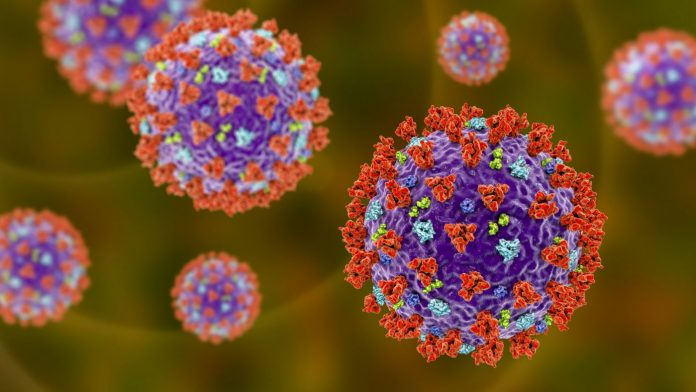
In a groundbreaking collaborative effort, scientists from the University of California, San Francisco’s Quantitative Biosciences Institute (UCSF QBI), University College London (UCL), and the Mount Sinai Icahn School of Medicine have unveiled crucial insights into the shared molecular mechanisms of SARS-CoV-2 variants that enable the virus to thrive even in the face of vaccination efforts.
The study, published in Cell, delved into the most infectious SARS-CoV-2 variants, including Alpha, Beta, Gamma, Delta, and Omicron. Researchers identified specific viral mutations responsible for manipulating a common host pathway, resulting in increased transmissibility, infectivity, and survival. Notably, they pinpointed a convergence in the potent suppression of interferon-stimulated genes by various viral proteins, such as Orf6 and Orf9b. These proteins act as innate immune antagonists, effectively blocking the host’s innate immune response.
“Unfortunately, we continue to see new mutations and strains of SARS-CoV-2 despite innovations in new vaccines. We evaluated each of the viral variants in isolation and discovered that there was a common mechanism involving several viral proteins, including Orf6 and Orf9b, that potently suppresses innate immunity,” explained Nevan Krogan, PhD, director of the Quantitative Biosciences Institute (QBI) at the School of Pharmacy at UC San Francisco and senior author of the study.
The findings align with earlier research on early SARS-CoV-2 variants, where certain viral proteins played a crucial role in infection. Krogan noted, “With our additional research across SARS-CoV-2 variants, we now see this as a crucial finding that, if targeted effectively, could be turned into a significant vulnerability for this virus, which also has important implications for the management of future pandemics.”
In a separate paper published in Cell Host & Microbe, scientists specifically investigated the role of Orf6 in undermining host antiviral responses. Lisa Miorin, PhD, assistant professor in the department of microbiology at Mount Sinai, highlighted their findings, stating, “We found that Orf6 is a major SARS-CoV-2 innate immune antagonist by selectively interfering with nucleocytoplasmic trafficking through direct interactions with the nuclear pore complex.”
According to the researchers, an absence of Orf6 significantly influenced the host’s antiviral response, ultimately reducing the effect of SARS-CoV-2 in animal models. Adolfo García-Sastre, PhD, professor of medicine at Mount Sinai, added, “These observations provide a potential new way to address viral pandemics by targeting a common pathway that the virus uses for infectivity, a different approach from vaccines that are created to target mutated spike proteins within individual variants.”
Contributing to this research was Mehdi Bouhaddou, PhD, assistant professor in the department of microbiology, immunology, and molecular genetics at the University of California, Los Angeles (UCLA). He emphasized the potential future approach to managing pandemics, suggesting a combination therapy approach that includes vaccines and antiviral innovations to target the virus effectively. He stated, “Perhaps with this approach, we may be able to get ahead of viruses before they reach pandemic levels.”
The researchers systematically studied the five SARS-CoV-2 variants of concern in human airway epithelial cells to understand the impact of viral mutations on replication and cellular responses. They concluded that a significant force shaping SARS-CoV-2 virus-host adaptations involves evasion of both innate and adaptive immune responses, highlighting the need for pan-coronavirus antiviral strategies. According to the scientists, these findings provide a ray of hope in the ongoing battle against COVID-19 and offer valuable insights for managing future pandemics.













